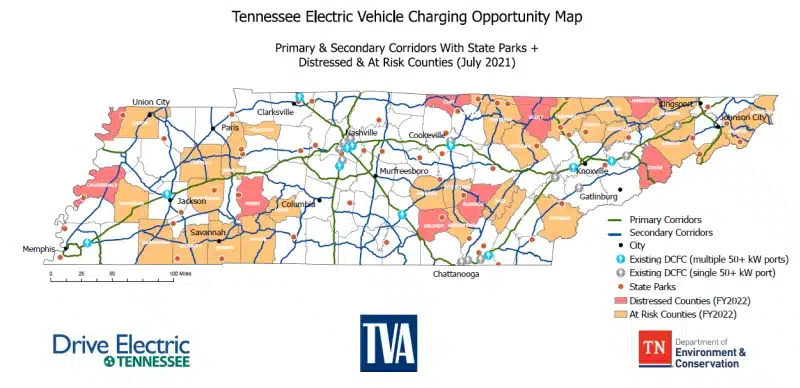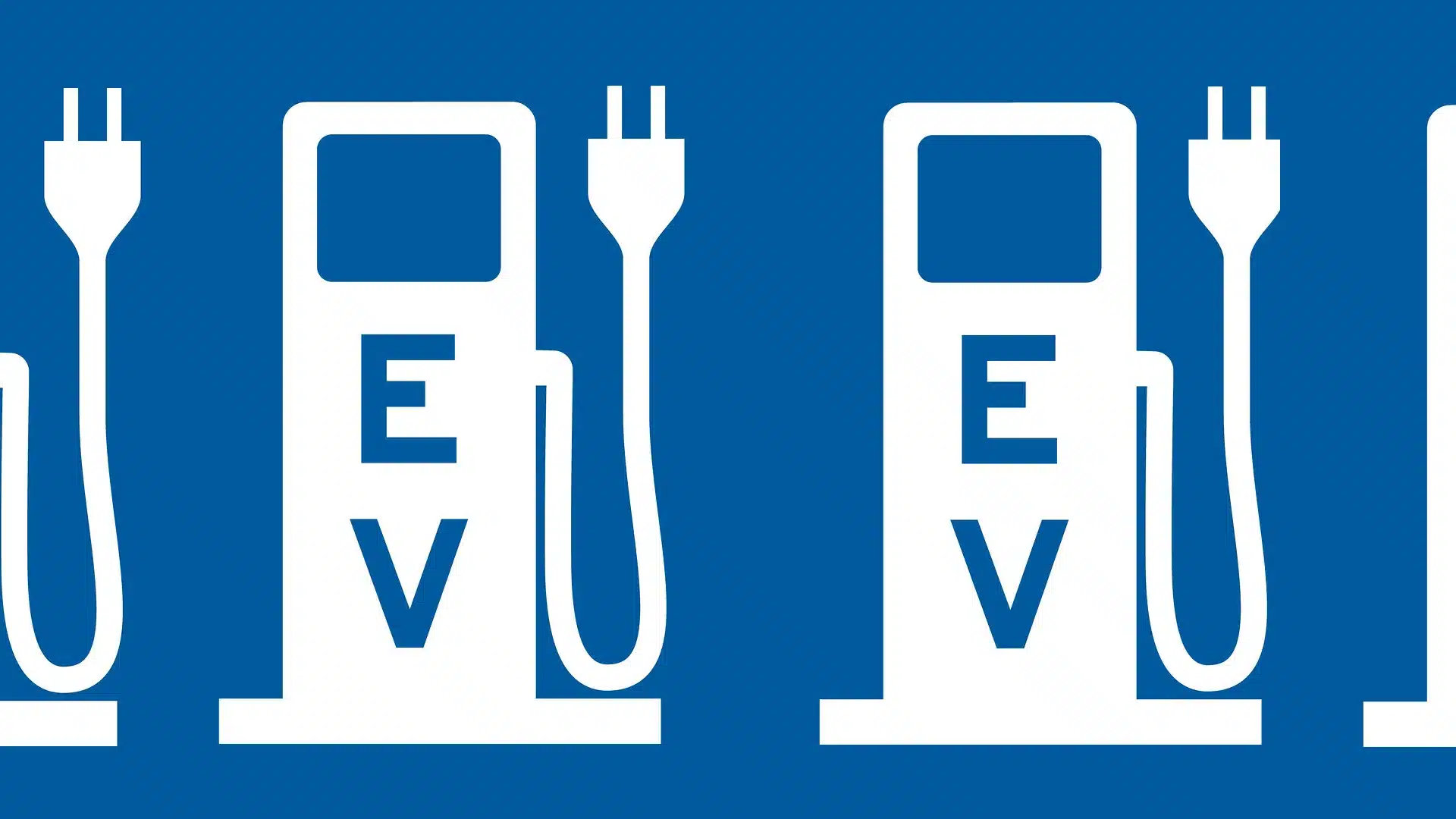Tennessee and TVA’s plan to fund a network of electric vehicle fast charging stations along every 50 miles of the state’s interstates and major highways is moving at a trickle charge pace.
An ambitious agreement between the state and the public electric utility was announced in 2021 — electric vehicle charging stations every 50 miles along Tennessee’s interstates and major highways. At the time, the state and TVA said there were only 23 fast charging sites in Tennessee that were open to the public and that supported both “charging standards common to EVs.”
The Fast Charge TN Network
The plan is called the “Fast Charge TN Network,” sometimes shortened to just the “Fast 50” program and has a $20 million price tag. Funding for the program includes $5 million from the state’s share of a national VW lawsuit settlement and $7 million in federal highway dollars.
The two charging standards “common to EVs” do not include Tesla’s NASC fast-charging standard (North American Charging Standard) that has since been adopted this year by virtually all car manufacturers for future cars beginning next year.
An electric vehicle news site, Electrek, called the Fast Charge TN Network “stagnant” in late August, claiming just one charging station had been added under the program in two and a half years.
The Chattanooga Times Free Press reported more positive numbers around the same time, putting the Fast 50 results at “fewer than a dozen locations,” but with three more sites scheduled to open in September and 53 other sites under development and scheduled to come online over the next 12 months.
The state Department of Transportation’s Fast Charge TN Network home page says as of March there were 25 fast charging locations operating in Tennessee open to all consumers and supporting both charging standards common to EVs. By that count, it’s a net of just two fast charging stations since 2021.

A map of fast charging stations on the state website has perhaps the most updated publicly available information.
It shows 16 Fast Charge TN Network sites in the state and more than a dozen pre-existing charging sites.
The Fast 50 program does not include the Level 2 chargers installed at Tennessee state parks in a partnership with Rivian. These relatively slow chargers are designed to let EV owners “top up” their cars while visiting the state’s parks, most of which are in rural locations where EV chargers are harder to find (or non-existent).
And fast chargers being installed by Tesla, which has not yet sought to participate in the state effort, are not included.
Fast Charger deployment not impressive
I’m sorry but one, two, less than a dozen or 16 charging “Fast 50” sites does not seem impressive.
Tesla, without public funding, has been rapidly expanding its network in Tennessee with far more charging stalls and more powerful chargers than the ones in the “Fast 50” program. Its locations typically have eight to 12 charging stalls minimum vs. the two to four minimum stalls in the “Fast 50” program.

And while the charging stations the state/TVA program are surely welcome, particularly in under-served areas, they are not all that fast “fast charging stations.”
Most are 62.5 kilowatt stations while Tesla Superchargers can deliver a maximum of 150 kW on its older generation chargers, 250kW on its newer versions and with a maximum of 350 kW coming. The “Fast 50” network of chargers fall in between Tesla’s Destination Chargers (often at hotels) and its Urban Chargers.
Anemic build-out pace
Pace of deployment is an issue for the program. The Tennessee Fast 50 pace is anemic.
“We knew going in that even under ideal conditions it would take 12 to 18 months to develop one of these rapid-charging stations from finding the site, purchasing the equipment and lining up all of the contractors to get the job done,” a TVA official told The Chattanooga Times Free Press.
By contrast, it has been reported that Tesla can open a Supercharger station from anywhere from a few weeks to a year. It took just eight days to deploy one in Florida last year. Admittedly, eight days is an exception, but the actual install of the equipment can be seven to 10 days.
And TVA’s best case is 12 to 18 months?
While there are over 750 charging stations in Tennessee for electric vehicles, including slow Level 2 chargers, the number of charging stations that can deliver 150kW or more power level needs to grow rapidly especially off the main interstates and away from urban areas.
The opening of the Tesla network to drivers of other makes will also help overall, although Tesla owners are not necessarily excited about the development.
‘Battery Belt’ state can do better
This need to most fast with it’s “Fast 50” plan should be obvious to TVA and Tennessee, part of the emerging “Battery Belt” of the United States. I just don’t see the energy being exerted that is needed to push this effort along.
